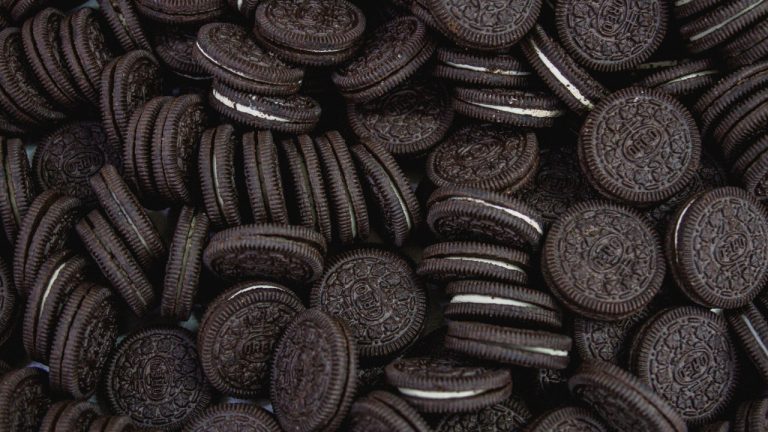The thing about television is this: it never really leaves.
You might think a show ended ten years ago, but then one night, while folding laundry or half-scrolling Instagram, you stumble upon a scene on YouTube. And there it is the rush. A line of dialogue you could mouth without thinking, a background track that somehow smells like 2013, the memory of a time when cliffhangers actually ruined your sleep schedule.
Maybe that’s the point. We never just watch shows; we live inside them for a while.
And when they’re cancelled, it’s not only a loss of entertainment. It’s like someone quietly boarded up a house we used to visit.
The ache of unfinished worlds
Every generation has its heartbreaks.
Gen X had Freaks and Geeks, which burned bright for one perfect season and vanished before anyone could explain why Sam liked Rush so much. Millennials mourned Firefly, Pushing Daisies, and Happy Endings proof that timing is crueler than talent. Gen Z still scrolls past edits of The Society or Julie and the Phantoms, whispering “justice for” like a prayer the algorithm might answer.
Cancellation doesn’t feel like rejection; it feels like being ghosted. You gave your weekends, your memes, your emotional bandwidth and suddenly the studio just… stopped texting back.
Funny how that happens.
Still, part of us loves incompleteness. The way unresolved stories stay open in our heads. Maybe you rewrote that finale yourself once, in the shower. Or imagined where your favourite character ended up. The human brain is weirdly loyal like that it keeps feeding old plotlines long after the network pulled the plug.
Nostalgia as a coping mechanism (and marketing strategy)
Streaming platforms know this. That’s why every few months, someone revives something. Gilmore Girls got its “Year in the Life.” Dexter tried redemption. Frasier moved into the era of podcasting dads. And every reboot rides on the same premise: nostalgia sells, even when it limps.
But nostalgia isn’t really about the show. It’s about who we were when we watched it.
You might think you miss The Office, but what you really miss is laughing with friends who still live nearby. You might want Gossip Girl back, but maybe it’s the memory of sneaking episodes on a laptop past midnight. Shows aren’t time machines, they’re time capsules. Every binge is a reunion with your past self.
So when we say, “I wish that show would come back,” maybe we’re not asking for a revival. Maybe we’re asking for a version of life where we still had the time to care about it.
The science of obsession (and unfinished dopamine loops)
Psychologists have a term for that restless itch you feel after a series ends abruptly: the Zeigarnik effect.
It’s the brain’s tendency to keep unfinished things active. Like mental tabs you can’t close. You start replaying scenes, guessing outcomes, even imagining what episode ten could have been.
Studios exploit this too. They end mid-arc because suspense keeps fandoms alive longer than closure ever could. Think of Mindhunter, Glow, or 1899 all killed too soon, yet trending on TikTok years later because curiosity never dies, it just loops.
There’s comfort in that frustration. It reminds us that we’re still capable of caring about fiction deeply enough to rant about it at 1 a.m. on Reddit. A small rebellion against indifference.
So which show should you resurrect?
Here’s a thought experiment.
Imagine you had one golden button. Press it, and a cancelled TV show of your choice returns exactly as it was: same cast, same writers, same chaotic magic. No reboots, no time jumps, just continuity, as if the world never stopped airing new episodes.
Who gets your vote?
Let’s test a few theories.
If you crave closure
You probably want The OA.
You value meaning, symbolism, the feeling that there’s a bigger story hiding just off-screen. The abrupt ending haunts you because it felt mid-sentence. You’d rather risk confusion than live with silence.
Or maybe it’s Sense8. You like human connection at scale, eight strangers sharing thoughts across continents. The finale movie didn’t scratch the itch. You want more trains, more tenderness, more techno-utopia.
If you miss friendship more than plot
That’s a Happy Endings situation.
You’re the kind of person who rewatches sitcoms not for the jokes but the rhythm of people who know each other too well. You remember every running gag, every half-baked dream sequence.
Or Community. You’d like another semester at Greendale, partly for Abed’s meta monologues but mostly for the sense of belonging inside chaos. You believe good writing can still save the world at least for twenty-two minutes.
If you secretly love chaos
Welcome back to Euphoria High no, not that one, the messy brilliance of My So-Called Life. The eyeliner was worse, but the feelings were real. Or Skins, before streaming sanitized teen rebellion. You don’t want perfection; you want honesty, even if it hurts a little.
Maybe Santa Clarita Diet? You appreciate humour so dark it makes you question your own laugh. You’d watch Drew Barrymore eat another suburban neighbour just to see what happens next.
If you believe justice is underrated
Then you’re campaigning for Hannibal.
You miss the operatic gore, the poetry of violence, the sheer audacity of a show that turned murder into art. You appreciate craft the way dialogue feels plated like fine dining.
Or The Newsroom, if your sense of justice leans idealistic. You like to imagine that articulate monologues could still fix society, even when you know they won’t. You’d trade reality TV for a five-minute Will McAvoy rant any day.
If you’re sentimental but deny it
It’s Pushing Daisies, obviously.
You pretend to like irony, but secretly adore whimsy the colours, the wordplay, the resurrected pies. You long for gentleness in storytelling, where death and love coexist in sugar glaze. You’d rewatch it with someone you care about, pretending it’s “quirky,” not romantic.
The quiet truth behind revival fever
Here’s what’s funny: when cancelled shows do return, we often lose interest halfway through. The magic rarely survives translation. Nostalgia ages faster than actors.
So maybe resurrection isn’t the point. Maybe longing itself is the pleasure. That slow ache of “what if” keeps imagination alive long after the credits fade. It’s like re-reading old messages not because you expect a reply, but because remembering feels almost enough.
Still, the fantasy of revival persists because it’s personal. A cancelled show isn’t just about scripts and ratings; it’s about memory architecture. The smell of popcorn mixed with heartbreak, the glow of a laptop on your face at 2 a.m., the theme song that made you pause just to feel something.
We don’t want those moments back exactly. We just want to believe stories can still surprise us. That the world hasn’t cancelled our plot yet.
The comeback fantasy we project onto screens
Every “bring it back” campaign says more about us than the show. When fans rally for revivals, they’re also proving their power in the attention economy. Hashtags as petitions. Edits as arguments. Love quantified in engagement metrics.
There’s something beautifully naive about believing collective desire can bend corporate will. And sometimes, it works. Brooklyn Nine-Nine rose from cancellation within thirty-one hours. Arrested Development returned after a decade.
But revivals often expose the quiet paradox: closure doesn’t feel as satisfying as craving. Once we get what we asked for, the thrill dissolves. Because the real story isn’t the show it’s the waiting, the yearning, the shared sense that something unfinished still matters.
If you could press play again
So which cancelled show should come back just for you?
Maybe the answer isn’t one show at all. Maybe it’s the feeling of discovering something before everyone else did. The rare sense that fiction was speaking your language, your moment, your exact heartbreak. That’s why we miss the mirror, not the reflection.
Still, it’s fun to imagine.
You in your old hoodie, lights off, streaming the pilot of a show you loved enough to lose sleep for. The title card flickers. The theme song starts. The world outside pauses for forty-two minutes, and for once, everything makes sense again.
Maybe the real revival we’re craving isn’t on television.
Maybe it’s in us.
One last scene
If this made you pause or smile, explore more playful, thought-provoking quizzes on Trendy Quiz because self-discovery should always feel fun.




